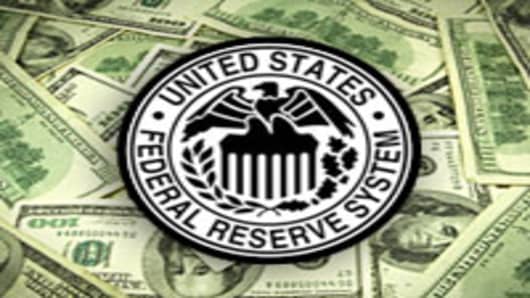The latest on board is Joe LaVorgna, chief US economist at Deutsche Bank, who warns in a note sent to clients Friday that “inflation pressures are inflating.”
The threat is two-pronged: On one hand this week’s producer and consumer price numbers show pressures are building in the crude, or initial, price pipeline that will spread to intermediate and finished products in the months ahead.
On the other hand is “energy inflation contagion,” in which surging prices in that space “have shown a significant capacity to breed inflation contagion among related categories and have destabilized inflation expectations.”
Taking both threats into consideration, LaVorgna posits that the Fed should reconsider completing the entire $600 billion of Treasury buys it has planned for the second leg of QE.
Unless the brakes are put on, LaVorgna argues that core finished PPI prices will increase at an annualized 4 percent rate, and he concedes that if his calculations are wrong they are on the low side.
Finally, he warns against the pervasive mindset that commodity price increases will not cause so-called “pass-through” costs into the broader economy. The rise in CPI and PPI comes as manufacturing activity and capacity are rising, as opposed to the last bout of commodity-induced inflation when the economy was shrinking.
An excerpt from the LaVorgna note:
“We believe the rise in commodity prices is significant, because it is occurring alongside robust factory activity and a general strengthening in underlying domestic demand—a crucial difference from the 2008 run-up in commodities, when the factory sector was shrinking and demand was slowing. Therefore, monetary policymakers should be cognizant of the pipeline pressure brewing in the PPI.
“The risk is that an overstay of aggressively accommodative monetary policy could lead to even larger gains in retail goods prices down the road—the Catch 22 of Fed folks worried that higher commodities will crimp demand. Rather it is ample demand that is pushing commodities higher. Consequently, as long as monetary policy remains extraordinarily accommodative, thereby further boosting demand, we expect these trends to persist if not become more durable.”
__________________________________________
Questions? Comments? Email us at NetNet@cnbc.com
Follow Jeff @ twitter.com/JeffCoxCNBCcom
Follow NetNet on Twitter @ twitter.com/CNBCnetnet
Facebook us @ www.facebook.com/NetNetCNBC



